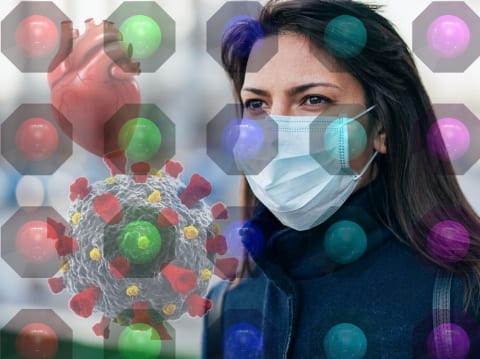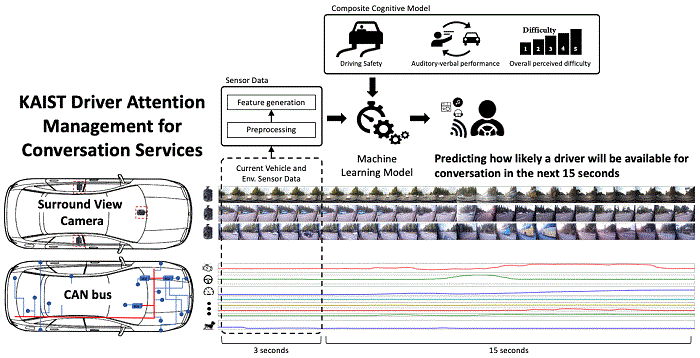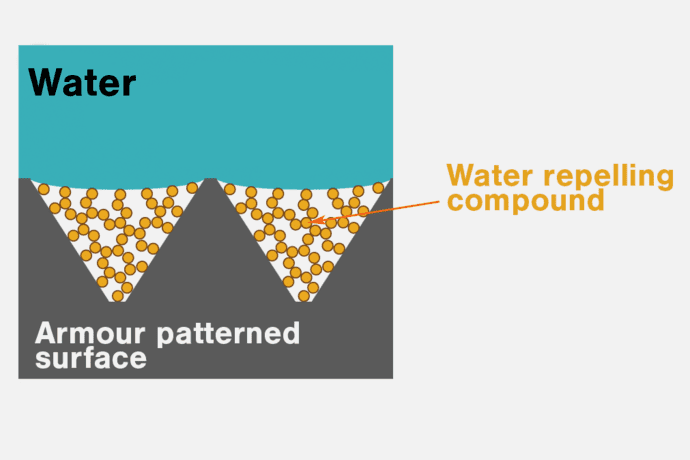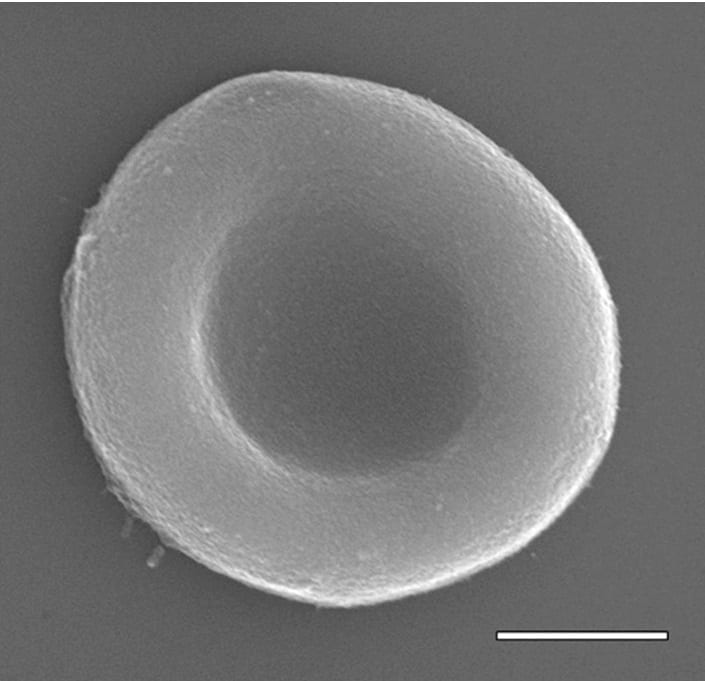
via NYU
COVID-19 Severity Score, Built with Data from China and New York City, Can Help Clinicians Identify the Most At-Risk Patients
A new mobile app can help clinicians determine which patients with the novel coronavirus (COVID-19) are likely to have severe cases. Created by researchers at NYU College of Dentistry, the app uses artificial intelligence (AI) to assess risk factors and key biomarkers from blood tests, producing a COVID-19 “severity score.”
Current diagnostic tests for COVID-19 detect viral RNA to determine whether someone does or does not have the virus—but they do not provide clues as to how sick a COVID-positive patient may become.
“Identifying and monitoring those at risk for severe cases could help hospitals prioritize care and allocate resources like ICU beds and ventilators. Likewise, knowing who is at low risk for complications could help reduce hospital admissions while these patients are safely managed at home,” said John T. McDevitt, PhD, professor of biomaterials at NYU College of Dentistry, who led the research.
“We want doctors to have both the information they need and the infrastructure required to save lives. COVID-19 has challenged both of these key areas.”
Creating a Severity Score
Using data from 160 hospitalized COVID-19 patients in Wuhan, China, the researchers identified four biomarkers measured in blood tests that were significantly elevated in patients who died versus those who recovered: C-reactive protein (CRP), myoglobin (MYO), procalcitonin (PCT), and cardiac troponin I (cTnI). These biomarkers can signal complications that are relevant to COVID-19, including acute inflammation, lower respiratory tract infection, and poor cardiovascular health.
The researchers then built a model using the biomarkers as well as age and sex, two established risk factors. They trained the model using a machine learning algorithm, a type of AI, to define the patterns of COVID-19 disease and predict its severity. When a patient’s biomarkers and risk factors are entered into the model, it produces a numerical COVID-19 severity score ranging from 0 (mild or moderate) to 100 (critical).
The model was validated using data from 12 hospitalized COVID-19 patients from Shenzhen, China, which confirmed that the model’s severity scores were significantly higher for the patients that died versus those who were discharged. These findings are published in Lab on a Chip, a journal of the Royal Society of Chemistry.
As New York City emerged as the epicenter of the pandemic, the researchers further validated the model using data from more than 1,000 New York City COVID-19 patients. To make the tool available and convenient for clinicians, they developed a mobile app that can be used at point-of-care to quickly calculate a patient’s severity score.
The Latest Updates from Bing News & Google News
Go deeper with Bing News on:
COVID-19 disease severity
- COVID-19 booster immunity lasts much longer than primary series alone, study shows
A new study shows that immunity after a COVID-19 booster lasts much longer than the primary series alone. These findings are among other, sometimes 'unintuitive,' revelations of how factors like age, ...
- Study: Antibiotic use in patients hospitalized with COVID-19 appears to have no beneficial effect on clinical outcomes
Antibiotic treatment of adults hospitalized with moderate COVID-19 is associated with clinical deterioration, despite the drugs being given to over 40% of patients, according to new research being ...
- Increased viral load and weaker immune response tied to severe COVID-19 infection among elderly, reveals study
As the COVID-19 pandemic continues to affect people of all ages, a new study has delved into the reasons why older individuals face a higher risk of severe illness from the virus. The study ...
- Global study reveals mismatch in COVID-19 treatment guidelines with WHO standards
Study assesses global discrepancies in COVID-19 management guidelines across WHO member states, revealing that many national guidelines do not fully align with WHO recommendations, especially in lower ...
- Optimal timing maximizes Paxlovid benefits for treating COVID-19
A new study suggests using the anti-COVID-19 treatment Paxlovid three to five days after symptoms emerge in patients and expanding global access to the drug may help reduce the severity and ...
Go deeper with Google Headlines on:
COVID-19 disease severity
[google_news title=”” keyword=”COVID-19 disease severity” num_posts=”5″ blurb_length=”0″ show_thumb=”left”]
Go deeper with Bing News on:
COVID-19
- Take Note! RSV infections are peaking, Covid-19 circulating at low levels, here’s what you can do
National spokesperson for the Department of Health, Foster Mohale said Covid-19 continues to circulate at low levels, while the influenza virus infections are starting to increase. “The National Institute for Communicable Diseases has a surveillance ...
- No, Brookings Institute didn't say Trump to blame for 70% of COVID-19 deaths | Fact check
A spokesperson for the Brookings Institution said she was not aware of such an estimate from the organization.
Go deeper with Google Headlines on:
COVID-19
[google_news title=”” keyword=”COVID-19″ num_posts=”5″ blurb_length=”0″ show_thumb=”left”]










